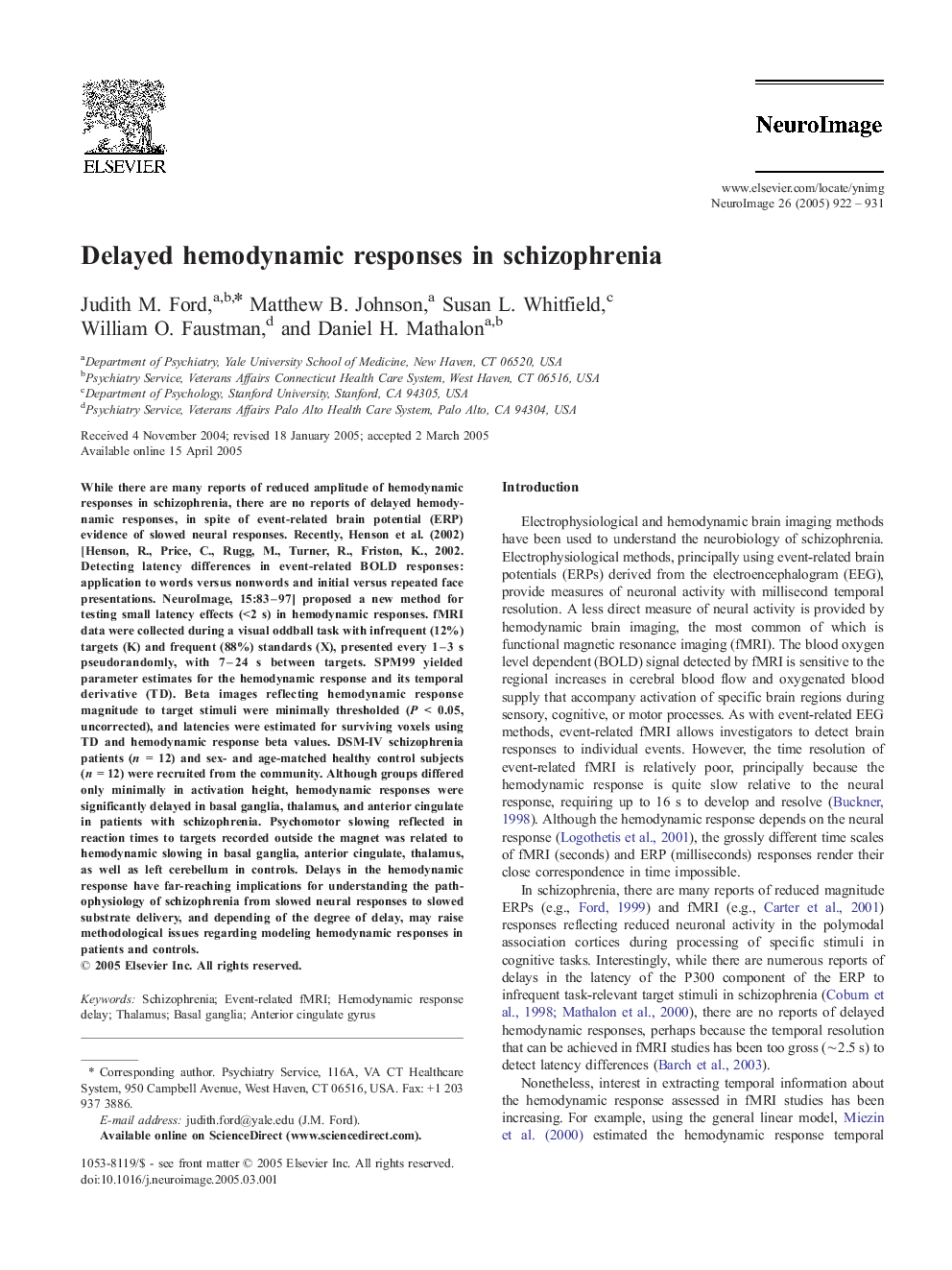| Article ID | Journal | Published Year | Pages | File Type |
|---|---|---|---|---|
| 9198386 | NeuroImage | 2005 | 10 Pages |
Abstract
While there are many reports of reduced amplitude of hemodynamic responses in schizophrenia, there are no reports of delayed hemodynamic responses, in spite of event-related brain potential (ERP) evidence of slowed neural responses. Recently, Henson et al. (2002) [Henson, R., Price, C., Rugg, M., Turner, R., Friston, K., 2002. Detecting latency differences in event-related BOLD responses: application to words versus nonwords and initial versus repeated face presentations. NeuroImage, 15:83-97] proposed a new method for testing small latency effects (<2 s) in hemodynamic responses. fMRI data were collected during a visual oddball task with infrequent (12%) targets (K) and frequent (88%) standards (X), presented every 1-3 s pseudorandomly, with 7-24 s between targets. SPM99 yielded parameter estimates for the hemodynamic response and its temporal derivative (TD). Beta images reflecting hemodynamic response magnitude to target stimuli were minimally thresholded (P < 0.05, uncorrected), and latencies were estimated for surviving voxels using TD and hemodynamic response beta values. DSM-IV schizophrenia patients (n = 12) and sex- and age-matched healthy control subjects (n = 12) were recruited from the community. Although groups differed only minimally in activation height, hemodynamic responses were significantly delayed in basal ganglia, thalamus, and anterior cingulate in patients with schizophrenia. Psychomotor slowing reflected in reaction times to targets recorded outside the magnet was related to hemodynamic slowing in basal ganglia, anterior cingulate, thalamus, as well as left cerebellum in controls. Delays in the hemodynamic response have far-reaching implications for understanding the pathophysiology of schizophrenia from slowed neural responses to slowed substrate delivery, and depending of the degree of delay, may raise methodological issues regarding modeling hemodynamic responses in patients and controls.
Related Topics
Life Sciences
Neuroscience
Cognitive Neuroscience
Authors
Judith M. Ford, Matthew B. Johnson, Susan L. Whitfield, William O. Faustman, Daniel H. Mathalon,
